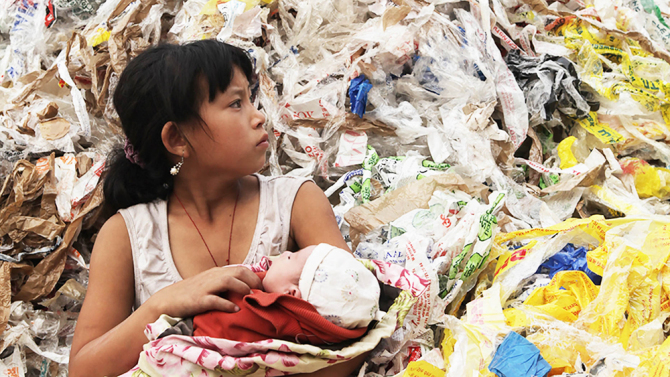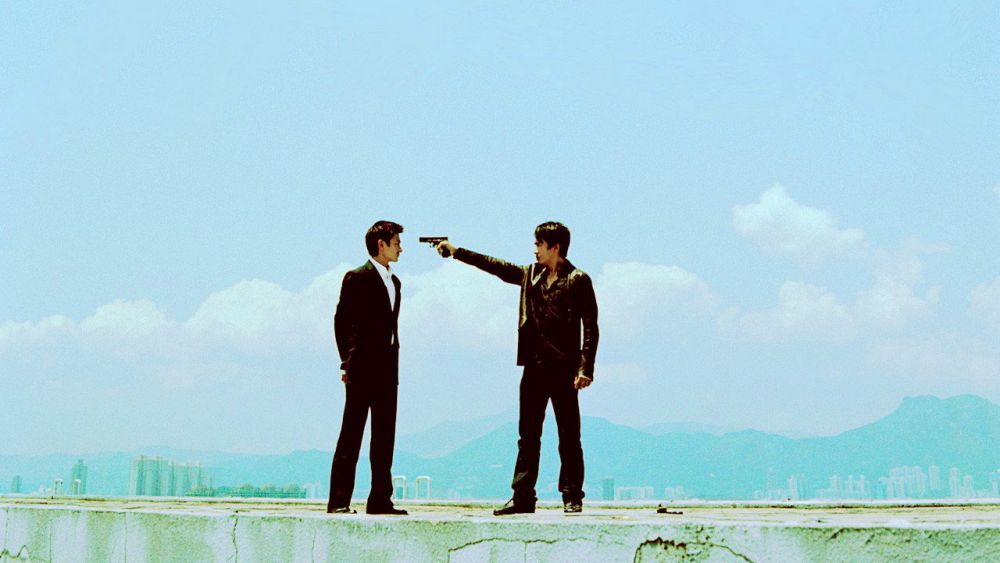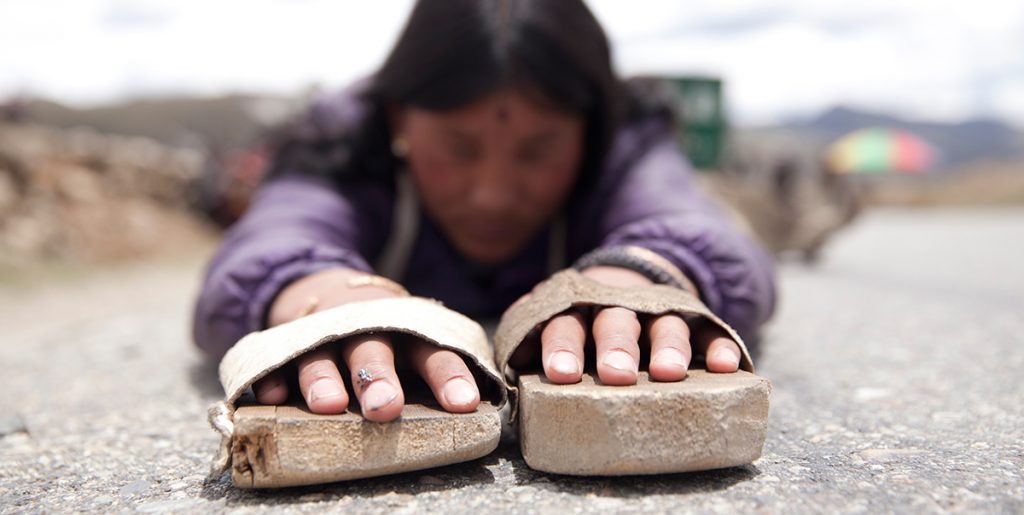Every day while CFI’s Hollywood readers take in the business of the Chinese film industry, the actual movies can sometimes seem exotic or remote. But in major US cities, mainstream Chinese films are increasingly available: thanks to Wanda’s purchase of AMC and distributors like China Lion, they get American theatrical releases practically simultaneous to their premieres at home. Though they receive virtually no publicity outside the non-Chinese community, these films are more than worth seeking out by anyone serious about engaging the Chinese industry, understanding the Chinese sensibility and familiarizing themselves with China’s talent pool. Periodically, CFI will review and point readers in the direction of noteworthy US releases of contemporary commercial and independent Chinese titles.

Film still from ‘Plastic China.’ Photo: Official photo.
Grade: A+
There’s a strong temptation to suggest a matinee screening of director Wang Jiuliang’s stunning documentary Plastic China. Its implications are so dark that viewers would do well to exit the theater into the daylight and thank their lucky stars that life is better for them than it appears to be for the family of migrant workers at the center of this brave film.
The film revolves around the lives of seven humans just scraping by at a stinking mom-and-pop factory sorting waste imported from the West for recycling. All the heaviness of hardscrabble poverty is there in stark, uncomfortable relief, and yet this un-narrated, stripped-down non-fiction testament to our environmental challenge is a must-see.
By stepping back and simply observing a tight-knit group of naturally-flawed human beings struggling to improve their existence, Wang—who also served as the film’s cinematographer—manages to make his work entirely relatable and, as a result, uplifting. (Any viewer who comes out of Plastic China and doesn’t think twice the next time he or she contemplates buying water in a disposable plastic bottle is a lost cause).
Most viewers will never have had the experience of being a pre-teen girl from rural Sichuan province whose illiterate, heavy-drinking, unskilled laborer father demands she care for her three younger brothers and infant sister and work to earn the boys’ tuition for a school she’s not allowed to attend. But anybody who’s ever found him- or herself stuck in an environment that makes growth nearly impossible will relate to the young children of Plastic China, growing up, literally, on a mountain of trash.
The children work, sleep, eat, play and sometimes dream—in that order—inside a cinderblock compound in East Coast China’s Shandong province. Everything they do happens near or directly on top of mounds of plastic comprised of greasy empty tubs of “Cholesterol-Lowering” margarine from Italy, bags of “Veterinarian-Recommended” special beef-formula kibble for the U.S.’s large pet dogs, pages of glossy fashion magazines advertising stilettos to Japanese women, bottles of “Revitalizing” foot cream from South Korea, and endless tangles of packing tape from DHL, FedEx, and UPS from all around the world.
Sort it out, melt it down and turn it into tiny hard plastic pellets that are then resold to make more plastic Mickey Mouse dolls, hot pink beach sandals, and sleek smartphones. That’s what these kids and their desperate parents do, day-in and day-out.
The kids don’t go to school—not this migrant workers’ five kids, anyway. Drunk and missing village life back home in Southwest China, their father rails about making $5 a day and curses the bankrupt values of the factory boss, who is himself a Shandong native just barely a rung up the ladder.
With much recent attention paid in the West to the Trump Administration’s abdication of the leadership role in combatting climate change and the opportunity this affords China to show the world just how green its once-red country could become, Plastic China shines a light on just how much help China will need from all its world neighbors—down to each individual human being—if it is to become a responsible role model for the stewardship of our planet.
Plastic China was produced by the CNEX Foundation, a nonprofit with roots in Taiwan, whose films about people from all around China exhibit a dedication to showing truths not widely reported in state-controlled media on the mainland. Their work and this film is a service to the world. We all need to know what’s going on in China’s environment. One-fifth of humanity calls it home and each day its members are developing habits of consumption that will be passed on to future generations—some good, but many bad and hard to break.
For each tear shed at the migrant kids voicing a desire to participate in the conspicuous consumption, the waste of which washes up on their shores (the migrant daughter collects cut-outs of magazine ads picturing fashionable shoes), Plastic China also sounds notes of hope and even joy. Told she can’t go to school, she takes it upon herself to study English from flash cards given to her by the factory boss (“I may be small but I am mighty,” she tells the camera at one point).
The factory boss himself is proud to be able to send his own son to school for $65 a month, to ditch his beat up old van for a sleek red sedan, and finally, to be able to take his mother, wife and only child to Beijing on holiday to see Chairman Mao’s mausoleum in Tiananmen Square.
“This is where the rich people live,” he tells his son. “Study hard and you can move to Beijing and buy a flat and a car and marry.”
In contrast to the migrant girl’s lament for the horses and cows and ducks and pigs of her home village, these words capture perfectly the ever-churning human desire to get ahead in the big city while also returning to a more peaceful existence in nature. Audiences lucky enough to catch Wang’s intimate slice of Chinese reality should be inspired to live in better harmony with nature and their fellow man, and, in a word, conserve.
Plastic China next screens in the United States at the Asia Society in New York on August 5 as a part of the Asian American International Film Festival. Click here for more screening info.
WHAT DOES THE GRADE MEAN?
Here are some recent & modern-era vintage Chinese and Hong Kong films for comparison
- A+
- PLATFORM (2000, dir Jia Zhangke)
- THE WORLD (2004, dir. Jia Zhangke)
- DRUNKEN MASTER 2 (1994, dir. Lau Kar Leung & Jackie Chan)
- KUNG FU HUSTLE (2004, dir. Stephen Chow)
- A
- LET THE BULLETS FLY (2010, dir Jiang Wen)
- THE MERMAID (2016, dir. Stephen Chow)
- A TOUCH OF SIN (2013, dir. Jia Zhangke)
- STILL LIFE (2006, dir. Jia Zhangke)
- MOUNTAINS MAY DEPART (2015, dir. Jia Zhangke)
- LITTLE BIG SOLDIER (2010, dir. Ding Sheng)
- EXTRAORDINARY MISSION (2017, dir. Alan Mak & Anthony Pun)
- MR SIX (2015, dir. Guan Hu)
- A WORLD WITHOUT THIEVES (2004, dir. Feng Xiaogang)
- SUZHOU RIVER (1999, dir. Lou Ye)
- HOUSE OF FLYING DAGGERS (2004, dir Zhang Yimou)
- RAISE THE RED LANTERN (1991, dir. Zhang Yimou)
- A-
- DUCKWEED (2017, dir. Han Han)
- I BELONGED TO YOU (2016, dir. Zhang Yibai)
- B+
- THE GREAT WALL (2016, dir. Zhang Yimou)
- OLD STONE (2016, dir. Johnny Ma)
- CRAZY STONE (2006, dir. Ning Hao)
- GO, LALA GO (2010, dir. Xu Jinglei)
- B
- KUNG FU YOGA (2017, dir. Stanley Tong)
- RAILROAD TIGERS (2016, dir. Ding Sheng)
- THE WASTED TIMES (2016, dir. Cheng Er)
- CHONGQING HOT POT (2016, dir. Yang Qing)
- MONSTER HUNT (2015, dir. Raman Hui)
- B-
- JOURNEY TO THE WEST: THE DEMONS STRIKE BACK (2017, dir. Tsui Hark)
- SOME LIKE IT HOT (2017, dir. Song Xiaofei & Dong Xu)
- BORN IN CHINA (2016, dir. Lu Chuan)
- D-
- TINY TIMES (2013, dir. Guo Jingming)









